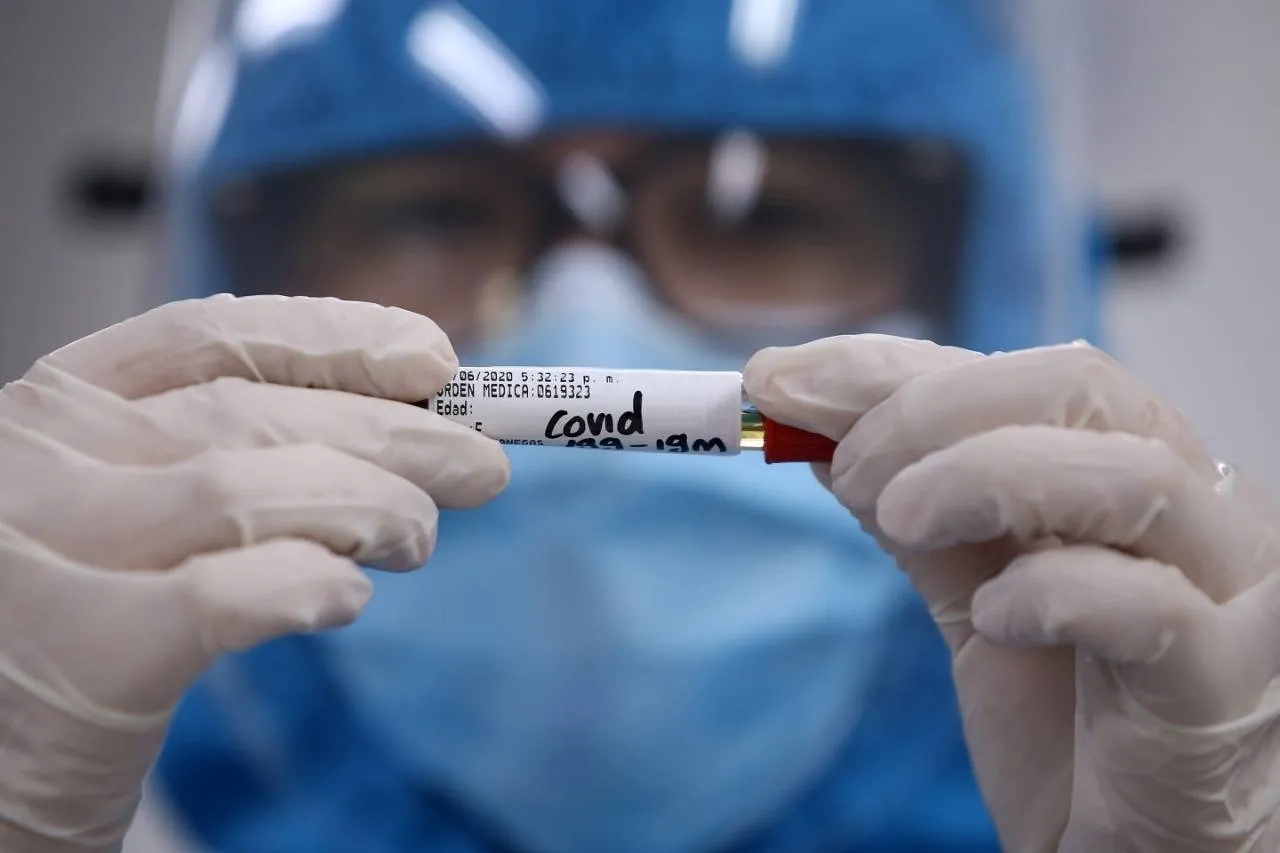Finn Gnadt is an 18 -year -old student from Kiel, Germany, who in April was, for a test, suffering from an infection of the new coronavirus.As Covid-19 symptoms did not develop, after quarantine he followed his life without worrying.However, a few days later he began to feel unusual fatigue and a constant thirst.His doctor, Tim Hollstein, of the Schleswig-Holstein University Hospital, determined what seemed unlikely for someone young and healthy: he had type 1 diabetes.
Since the only anomalous in its recent history had been the SARS-COV-2, the doctor considered that the sudden appearance of diabetes could be linked to the infection, according to Nature at the end of June.Most people develop type 1 diabetes because their immune system attacks their own beta cells in the pancreas, those responsible for producing insulin.In the case of Gnadt, Hollstein suspected, the Coronavirus had been responsible for destroying them.
His perception found other elements to expand his base: at the beginning of June several cases of people who had reached hospitals had been accumulated with a strange combination of Covid-19 symptoms and high levels of sugar and blood ketone bodies, typical signs, typical signalsof diabetes.At that time several experts from Europe, the United States, Australia and Asia published a letter in the New England Journal of Medicine (NEJM):
"There is a bidirectional relationship between COVID-19 and diabetes," they said.“On the one hand, diabetes is associated with a higher risk of severe COVID-19.On the other hand, in patients of COVID-19, both diabetes and several serious metabolic complications in pre-existing diabetes have been observed, including diabetic ketoacidosis and hyperosmolarity, which require exceptionally high doses of insulin. ”
One of the main signatories of that letter, Francesco Rubino, researcher at King's College, London, began to gather the data he saw in his practice, in the United Kingdom, with those of other colleagues in China, Italy and other places very affected by thebeginning of pandemic.And what he found was beyond the normal spectrum by which an infection can be expected to stress the human body to the point of making blood sugar levels rise.
"What we saw was a bit different," he told Wired now to explain the global data effort that is being made in order to better understand the strange double relationship between COVID-19 and diabetes.
The first enigma they found was a strange combination in the two usual, but different ways, in which the disease is presented.On the one hand, people with type 1 diabetes suffer a kind of betrayal of their immune system, which destroys perfectly healthy cells of the pancreas.On the other, people with type 2 diabetes become slowly resistant to insulin that their body produces."Rubino and his colleagues observed characteristics of both types that arose spontaneously in Covid-19 patients," summarized the publication.
In search of an explanation, the researcher and his colleagues began by observing the angiotensin 2, ECA2, a very distributed molecule in the body - is in the respiratory tract and also in several organs of the digestive tract, which participate in the controlBlood sugar-which works as a gateway to the SARS-COV-2 to human cells.They found, for example, that one in 10 COVID-19 patients suffers gastrointestinal symptoms.
The next step was to verify if, once the infection of the coronavirus was resolved, the problems of the glycemia regulation disappeared in turn.The data, as organized, failed to offer a unique response.In some recovered patients, diabetes hadpersisted;Others in others, the manifestations had improved.
"We could not address those questions only with those reports of anecdotal cases that were published," Rubino argued to Wired.That is why he and an international group of his colleagues created a file to track information on diabetes linked to coronavirus on a global scale: the Covidiab Registry.
There the doctors of the entire world who want to participate upload anonymized data on their patients with abnormal blood sugar levels: age, sex, medical history.And, of course, the characteristics of your experience with the SARS-COV-2: if they required intensive care or a respirator, for example, or what medications were administered.
“The objective of this information collection effort is to tote the scale and scope of the problem, and also try possible solutions.How often COVID-19 is associated with the emergence of diabetes?And what kind of disease is presented, type 1 or type 2?Or a new way?What exactly is what causes metabolic malfunction?How long do these cases of diabetes last, and what are the best ways to treat them? ”Summary the magazine some of the central objectives of the initiative.
“It could spend a lot of time before there is sufficient data to answer questions about prevalence and mechanism.But Rubino believes that he could have information on what types of diabetes develop more frequently in COVID-19 patients and what could predispose people to this particular complication of Coronavirus by the end of the year, ”said the article.And that is undoubtedly something of great importance given the way in which diabetes affects people in the long term.
The database operates since June.Since then, more than 275 doctors in the world have requested access to share data from at least one patient who meets the criteria.Evaluate each case that could be accepted takes time;It also demands it to comply with the data protection laws that exist in several countries, including those of the European Union.But the material that currently exists in the Covidiab Registry is enough for Rubino and his colleagues to have reached a preliminary conclusion: it is not an anecdotal issue.
"According to what we have seen so far, diabetes linked to COVID-19 may not be a prevalent problem in most people, but we do know that it is a possibility," he said.Even if it is not common, it is a statistically relevant trend.
On the other hand, it is important that COVID-19 patients know if the pathogen alters their ability to maintain normal blood glucose levels since diabetes is a disease that can be easily handled as long as it is not ignored.It matters to be attentive, Rubino said, although without alarming himself.If someone who has been recently diagnosed with the SARS-COV-2 Note that needs to urinate more frequently than usual or feel fatigued even after having recovered from other symptoms, such as fever, cough and loss of smell, might considerThe possibility of becoming a blood analysis.
Rubino and his colleagues hope to maintain this database during the years to come, to investigate the relationship of the coronavirus with long -term diabetes and confirm properly if it is something passenger, more or less lasting or permanent.Also if there can be more strange situations, such as that infection does not cause diabetes immediately but damages the tissues that participate in metabolism in such a way that it will increase the risk of someone developing the disease in the future.
"We are looking to establish if the COVID-19 leaves bequeathed," Rubino said."With the registration we hope to look to the future, not only at present."
DadaistThe enormous amount of questions that the SARS-COV-2 still presents, the Covidiab Registry adds to other data to compilation of data from the link between the coronavirus and other paintings, including inflammatory intestinal disease, chronic liver disease,rheumatic disorders and heart complications.




